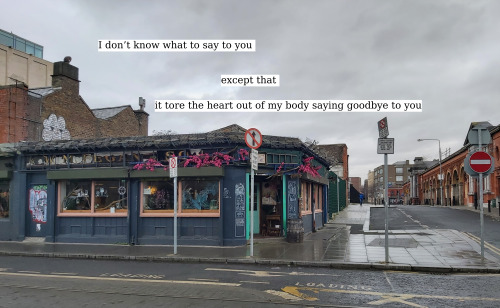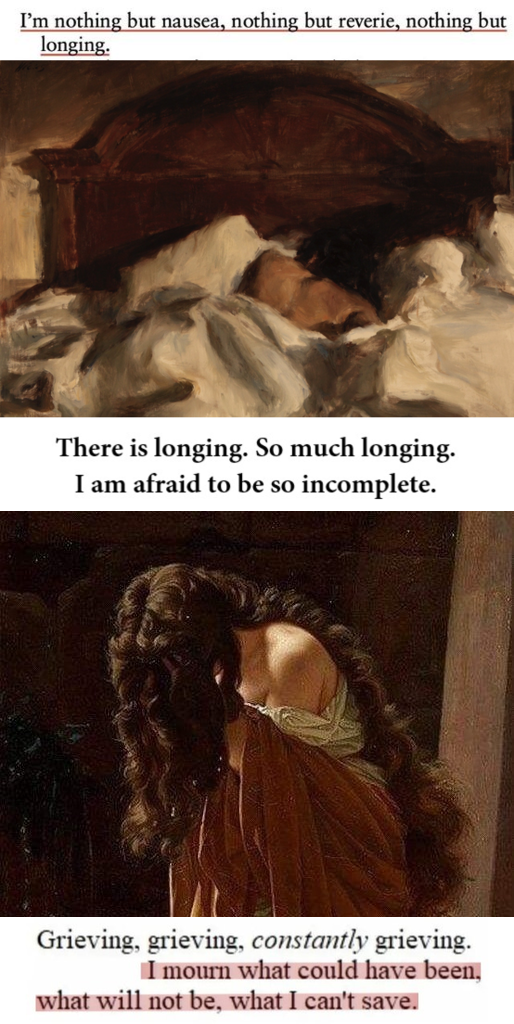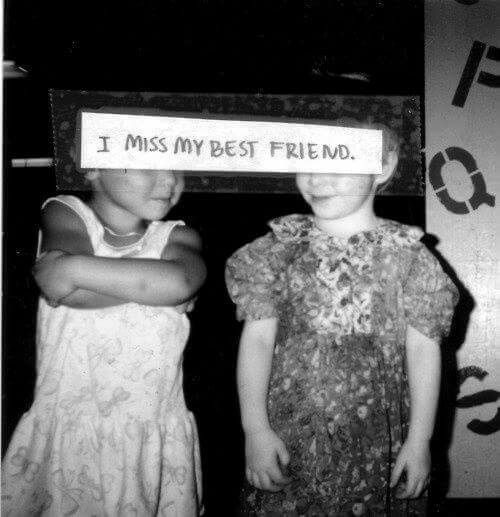Heartstopperthought’s Top 10 Nick And Charlie Scenes So Far: A Countdown To Season 3


heartstopperthought’s top 10 Nick and Charlie scenes so far: a countdown to season 3
#2: The ending scene between Nick and Charlie in season 2
More Posts from Grotesquesoul09 and Others


WOLFGANG AMADEUS MOZART - BIOGRAPHY -
Discouraged by the parsimony of the Emperor, failing to become teacher to Princess Elizabeth, and feeling unappreciated, Mozart decided to leave Vienna for France and England. At that time, he was known in Vienna primarily as a pianoforte player; only after the appearance of the "Magic Flute" was he recognized as a great operatic composer—but by then it was too late. Leopold opposed his son's plans and even wrote to the Baroness von Waldstädten to reason with him, adding, "What is there to prevent his having a prosperous career in Vienna if he only has a little patience?" Mozart thus stayed, giving lessons, concerts in the Augarten, and performances in the theatre and various halls, where his concertos and playing were highly successful. His old love Aloysia sang, and Gluck applauded from a box.
Mozart's subscription concerts were crowded, and he earned well. Yet, despite these successes, he struggled financially. Lacking business sense, he was often short on money and regularly borrowed small sums to pay off debts. Attempts at reform, such as keeping an account book from March 1784 to February 1785, proved ineffective. Constanze was not an efficient housewife, and financial troubles persisted.
In 1783, a son was born and died the same year; that summer, they visited Salzburg, where Mozart fulfilled a vow by performing a mass and wrote duets to aid Michael Haydn, who was ill. The visit, however, disappointed Mozart, as his family showed little fondness for Constanze, and trinkets from his youth weren’t offered to his wife. In 1785, Leopold visited Vienna, where he wept with joy at Wolfgang’s performance and heard Haydn proclaim Mozart as "the greatest composer I have ever heard."
Mozart became a Freemason, influenced by the era’s secret societies promoting liberty of conscience and independence of thought. With his humanitarian ideals, Mozart entered eagerly into masonic ties, contemplating his own secret society and writing for his lodge, Zur gekrönten Hoffnung. His masonic "Trauermusik" remains celebrated for its beauty and originality.
In 1784, the German opera in Vienna was almost extinct. For her benefit, Aloysia Lange chose Mozart's "Escape from the Seraglio" and the composer directed it; productions like Gluck's "Pilgrimme von Mekka" and Benda's melodramas followed. By 1785, there was an attempt to revive German opera to compete with Italian opera, but the performances did not match the Italian standard. Unfortunately, Mozart was not pitted against Salieri by the Emperor, who favored foreign talent.
In 1786, German and Italian dramatic performances were ordered for a festival; Mozart wrote the music for "Der Schauspieldirector" (The Theatre Director), while Salieri received a better text. The Italian operas continued to thrive among court and public alike, drawing many of the best singers.
Mozart’s prospects in opera looked bleak until he met Lorenzo da Ponte in 1785. Da Ponte, an abbé and theatrical poet, had a falling out with Salieri and sought a new composer to rival his benefactor. Mozart desired an adaptation of Beaumarchais' comedy, "Le Mariage de Figaro", then popular on the French stage, though the comedy itself was banned in Vienna. Da Ponte used his influence to confide the plan to Emperor Joseph, who, though he questioned Mozart's operatic skill, agreed to hear parts of the work and ordered its rehearsal.
The entire opera was reportedly completed in six weeks despite a cabal led by Salieri against its success. Yet on May 1, "Figaro" premiered to overwhelming acclaim. Michael Kelly, who played Basilio and Don Curzio, recorded that "Never was anything more complete than the triumph of Mozart." During subsequent performances, several pieces were repeated multiple times, with some performed as many as three times in a single night. However, in November, Martin's "Cosa Rara" captivated the public’s shifting interests, and "Figaro" saw reduced performances by 1787. The opera later gained fame across Europe and inspired Mozart's next masterpiece, "Don Giovanni," after an immediate success in Prague.
The success of "Figaro" did not bring material benefits to Mozart in Vienna. Frustrated by teaching and with few prospects, he considered going to England until he received a letter from Prague’s orchestra, inviting him to witness "Figaro's" enormous success there. In January 1787, Mozart arrived in Prague with Constanze, welcomed warmly by Count Thun. He saw Prague’s enthusiasm for "Figaro" everywhere—in streets and concert halls alike, where even chamber arrangements of the opera were played and sung. After two successful concerts, Mozart’s happiness was capped by a contract for a new opera with Bondini.
Mozart immediately thought of Da Ponte for a libretto, and Da Ponte suggested "Don Giovanni"—a tale already adapted by writers like Molière and composers such as Gluck and Righini. Working between stories and with Mozart’s libretto in sixty-three days, Da Ponte’s productivity was matched only by Mozart’s own dedication to the score. Though Mozart’s father had died in May, causing him grief, he poured his efforts into "Don Giovanni" while in Prague. Stories about his methods and behavior—including the overture, reportedly unwritten until the evening before the premiere—paint a vibrant, though speculative, picture of his time there.
The Prague premiere on October 29, 1787, was a triumph. Shortly after returning to Vienna, Mozart was appointed Chamber Musician by Emperor Joseph following Gluck's death. Yet "Don Giovanni" initially struggled in Vienna; the Emperor said it would be a challenge for his Viennese. Mozart, undeterred, remarked, “We will give them time to chew it.” Eventually, the opera’s influence grew across Berlin, Paris, and London, and by 1825, it even reached New York through the efforts of Garcia and Da Ponte. In time, "Don Giovanni" was seen as Mozart’s masterpiece, with the composer reportedly admitting he wrote it “not at all for Vienna, a little for Prague, but mostly for myself and friends.”
Thank you FB @ Alex Rosas Navarro
NOTE: Here in this biographical account we see Salieri in active opposition to Mozart on more than one occasion, which would lead one to conclude that where there is smoke, there is fire, as far as the antagonism that existed between Mozart and Salieri.

Country Kitchens, 1991






Happy Heartstopper day!
Here’s an honorable mention that didn’t make it into my countdown.







maybe tomorrow will be better






























right person, wrong time (variations on heartbreak)
@leemartenspoetry on tumblr
vita sackville-west & fegan’s 1924 café in dublin
everything everywhere all at once (2022)
@heavensghost on tumblr
i had to get out by indigo de souza
‘calling a wolf a wolf' by kaveh akbar
river by joni mitchell
‘english song’ in a little larger than the entire universe: selected poems by fernando pessoa
slumber by ron hicks
fish in exile by vi khi nao
penitent magdalene by antonio ciseri
@ojibwa on tumblr
this is what the drugs are for by gracie abrams & the awakening by angelo morbelli
as good as it gets by fizz
lonely this christmas by mud & picture of the christmas tree at trinity college dublin, taken by me in december of 2022
this is what the drugs are for by gracie abrams & picture by andrew collins via globalnews.ca
@inanotherunivrs on tumblr & a polaroid of me taken by my ex-boyfriend
‘in a dream you saw a way to survive’ by clementine von radics & a picture of my ex-boyfriend's window, taken by me
bluets by maggie nelson & the poolbeg generating station, dublin
‘unrequited’ by sasha m george & inheritance by matthew w. cornell
[unknown]
@ faraway on instagram & lavender sprigs farm cut by linda jacobus
the museum of heartbreak by meg leder
[unknown]
‘seaside improvisation’ by richard siken
@ dracarysgang on twitter
@-love-letters-i-never-sent
@fromdarzaitoleeza on tumblr
explosions by ellie goulding
‘i had a dream about you’ by richard siken
the beatrice letters by lemony snicket
la la land (2016)
‘catalog of unabashed gratitude’ by ross gay
@stuckinapril on tumblr
@deathlywounded on tumblr
some are always hungry by jihyun yun
‘speaking practice’ by franny choi
a self-portrait in letters by anna sexton & a picture of my ex-boyfriend in a lake in Orfű, Hungary
@sunsbleeding on tumblr
‘there is no absolution for the fallen, only the dying’ by p.d










Of lost chances, forbidden love and remorse.
It's better to have loved and lost than never to have loved at all.
Films in frame: Past lives, La la land, Fleabag, Normal People, In the mood for love, Atonement, Potrait of a lady on fire, Maurice, Blue Valentine, Her
Days at the Morisaki Bookshop
Check out this book on Goodreads: Days at the Morisaki Bookshop https://www.goodreads.com/book/show/62047992-days-at-the-morisaki-bookshop

For nearly a year, I found myself ensnared in an unforgiving reading slump, each attempt to engage with a book met with disinterest and fatigue.
Then, as if by fate, Days at the Morisaki bookshop caught my attention, compelling me to give it a chance. That decision, was nothing less than a stroke of fortune.
This book was a balm to my weary soul, offering a serene and deeply comforting experience, particularly given the tumultuous state of my mind at present. It provided the perfect escape from reality. Now, with renewed enthusiasm, I eagerly anticipate diving into the sequel.




I hate how I can create amazing scenarios in my mind but I can't write a paragraph
-
 growingpages liked this · 3 weeks ago
growingpages liked this · 3 weeks ago -
 phenixy-dunnhart liked this · 2 months ago
phenixy-dunnhart liked this · 2 months ago -
 maggie259 liked this · 3 months ago
maggie259 liked this · 3 months ago -
 captaintrippingthroughlifeworld liked this · 3 months ago
captaintrippingthroughlifeworld liked this · 3 months ago -
 manesalex reblogged this · 3 months ago
manesalex reblogged this · 3 months ago -
 diescrydarm liked this · 4 months ago
diescrydarm liked this · 4 months ago -
 pretty-pink-sock liked this · 5 months ago
pretty-pink-sock liked this · 5 months ago -
 hearstopper13 liked this · 5 months ago
hearstopper13 liked this · 5 months ago -
 justaqueernerd0-0 liked this · 6 months ago
justaqueernerd0-0 liked this · 6 months ago -
 grotesquesoul09 reblogged this · 6 months ago
grotesquesoul09 reblogged this · 6 months ago -
 grotesquesoul09 liked this · 6 months ago
grotesquesoul09 liked this · 6 months ago -
 whosgreymidnightthoughts liked this · 6 months ago
whosgreymidnightthoughts liked this · 6 months ago -
 chr0n1c0verth1nker liked this · 6 months ago
chr0n1c0verth1nker liked this · 6 months ago -
 unleashthebeees liked this · 6 months ago
unleashthebeees liked this · 6 months ago -
 cerise-hood liked this · 6 months ago
cerise-hood liked this · 6 months ago -
 imfakingit liked this · 6 months ago
imfakingit liked this · 6 months ago -
 streawberige liked this · 6 months ago
streawberige liked this · 6 months ago -
 sana10 liked this · 6 months ago
sana10 liked this · 6 months ago -
 sweaty-toothed-mad-woman liked this · 6 months ago
sweaty-toothed-mad-woman liked this · 6 months ago -
 jax-snax liked this · 7 months ago
jax-snax liked this · 7 months ago -
 alpacarl liked this · 7 months ago
alpacarl liked this · 7 months ago -
 dancingnerd-22 liked this · 7 months ago
dancingnerd-22 liked this · 7 months ago -
 downthe-f4ndom-rabbith0le liked this · 7 months ago
downthe-f4ndom-rabbith0le liked this · 7 months ago -
 emisnotfound liked this · 7 months ago
emisnotfound liked this · 7 months ago -
 rins-batcave liked this · 7 months ago
rins-batcave liked this · 7 months ago -
 thedaniphantom liked this · 7 months ago
thedaniphantom liked this · 7 months ago -
 chubbybubba reblogged this · 7 months ago
chubbybubba reblogged this · 7 months ago -
 chubbybubba liked this · 7 months ago
chubbybubba liked this · 7 months ago -
 nickimbiactuallynelson reblogged this · 7 months ago
nickimbiactuallynelson reblogged this · 7 months ago -
 hopelessly-romantic-world liked this · 7 months ago
hopelessly-romantic-world liked this · 7 months ago -
 gay-book-nerd liked this · 7 months ago
gay-book-nerd liked this · 7 months ago -
 sasakisniko liked this · 7 months ago
sasakisniko liked this · 7 months ago -
 lire-casander reblogged this · 7 months ago
lire-casander reblogged this · 7 months ago -
 lire-casander liked this · 7 months ago
lire-casander liked this · 7 months ago -
 etcland liked this · 7 months ago
etcland liked this · 7 months ago -
 imlailaprobably liked this · 7 months ago
imlailaprobably liked this · 7 months ago -
 emislitz liked this · 7 months ago
emislitz liked this · 7 months ago -
 likewedreamimpossiblethings liked this · 7 months ago
likewedreamimpossiblethings liked this · 7 months ago -
 the-official-rocking-russian-man liked this · 7 months ago
the-official-rocking-russian-man liked this · 7 months ago -
 solitarybookdragon liked this · 7 months ago
solitarybookdragon liked this · 7 months ago -
 my-yellow-world liked this · 7 months ago
my-yellow-world liked this · 7 months ago -
 carloswife liked this · 7 months ago
carloswife liked this · 7 months ago -
 crumpetter liked this · 7 months ago
crumpetter liked this · 7 months ago -
 noodle13x liked this · 7 months ago
noodle13x liked this · 7 months ago -
 katymarieharris liked this · 7 months ago
katymarieharris liked this · 7 months ago -
 thedemonofcat reblogged this · 7 months ago
thedemonofcat reblogged this · 7 months ago -
 wqndfilms liked this · 7 months ago
wqndfilms liked this · 7 months ago -
 maddigarv liked this · 7 months ago
maddigarv liked this · 7 months ago

